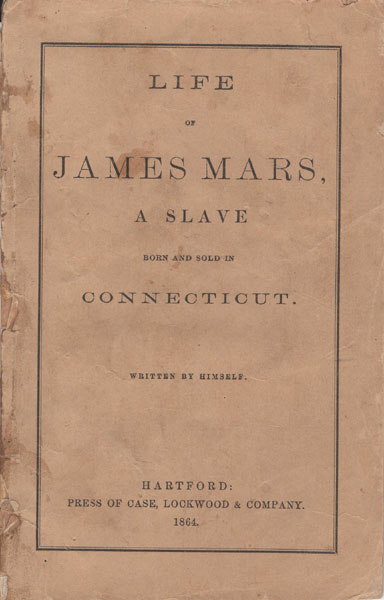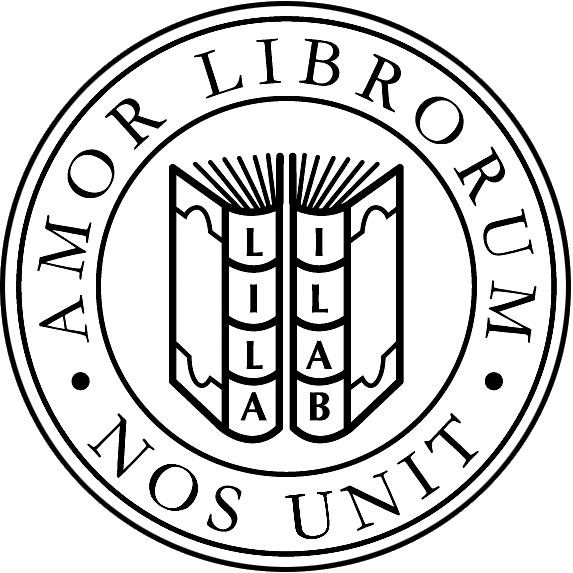Dealer in Rare and First-Edition Books: Western Americana; Mystery, Detective, and Espionage Fiction
Life Of James Mars, A Slave Born And Sold In Connecticut
JAMES MARS
Other works by JAMES MARSPublication: Press of Case, Lockwood & Company, 1864, Hartford
First edition. 4 1/2 x 7 1/4" in tan printed wrappers. The autobiographical story of a man born into slavery in the North, who gained his eventual freedom through Connecticut’s emancipation laws and wrote down his life story, originally for his sister in Africa. At the encouragement of others during the early years of the Civil War, Mars decided to have it printed and sell a few copies to cover his expenses and to let people know that slavery had existed in Connecticut, too, not just the South. "James Mars was born into slavery in Canaan, Connecticut, in 1790. Reverend Thompson, the town’s Congregational minister, owned Mars’ parents and siblings. James, however, was born as Connecticut began to gradually abolish slavery. His memoir stands as one of the most important accounts of the cruelties and uncertainties of life for the enslaved in New England. The enslavement of African peoples had been present in Connecticut since the 17th century, and by 1775 slaves in the state numbered roughly 3% of the population. In 1783 the General Assembly passed a gradual emancipation act, which would take effect on March 1, 1784. From that date, all children born to enslaved parents would be free upon reaching their age of majority ... 25 for men, 21 for women. While the enslaved could not be sold out of state, they were to labor faithfully for their mother’s owner who could sell them to work for another master or mistress until they reached the requisite age to be freed. James remained in the custody of Thompson, who in the latter 1790s decided to remove to Virginia and to take the Mars family with him. Once the family realized his plans, they fought tenaciously to circumvent them. Fleeing to the nearby town of Norfolk, Connecticut, James’ parents found local white supporters who hid the family and would alert them when Thompson or his agents prowled the vicinity. Over the next several years, they lived, worked and roamed furtively in and about the households and woods of Norfolk. By September, 1798, Thompson had grown eager to move to Virginia and tired of tracking the Mars family. Thompson arranged through intermediaries for James to be sold to a Mr. Munger of Norfolk. Munger proved to be an abusive taskmaster. Old and frail, Munger worked James long and strenuously in the fields, at woodcutting, and with tending the horses and cattle. Munger “was fond of using the lash,” as James later wrote. James’s brother managed to gain his freedom by the age of 21 and James set his hopes on a similar release. When he turned 21 he went to his parents’ house and refused to return to Munger. The courts eventually intervened and determined that James be freed from Munger upon paying him a compensation of $90. By 1870, impoverished and increasingly frail, Mars determined to write his autobiography because '[s]ome told me that they did not know that slavery was ever allowed in Connecticut, and some affirm that it never did exist in the State.' He recognized 'that the so-called favored state, the land of good morals and steady habits, was ever a slave state, and that slaves were driven through the streets tied or fastened together for market. This seems to surprise some that I meet, but it was true.'” Some old water stains throughout the tops of pages and back cover; chipping at corners and along spine fold, else a good copy. Scarce.
Inventory Number: 44723Sold -- Contact us













